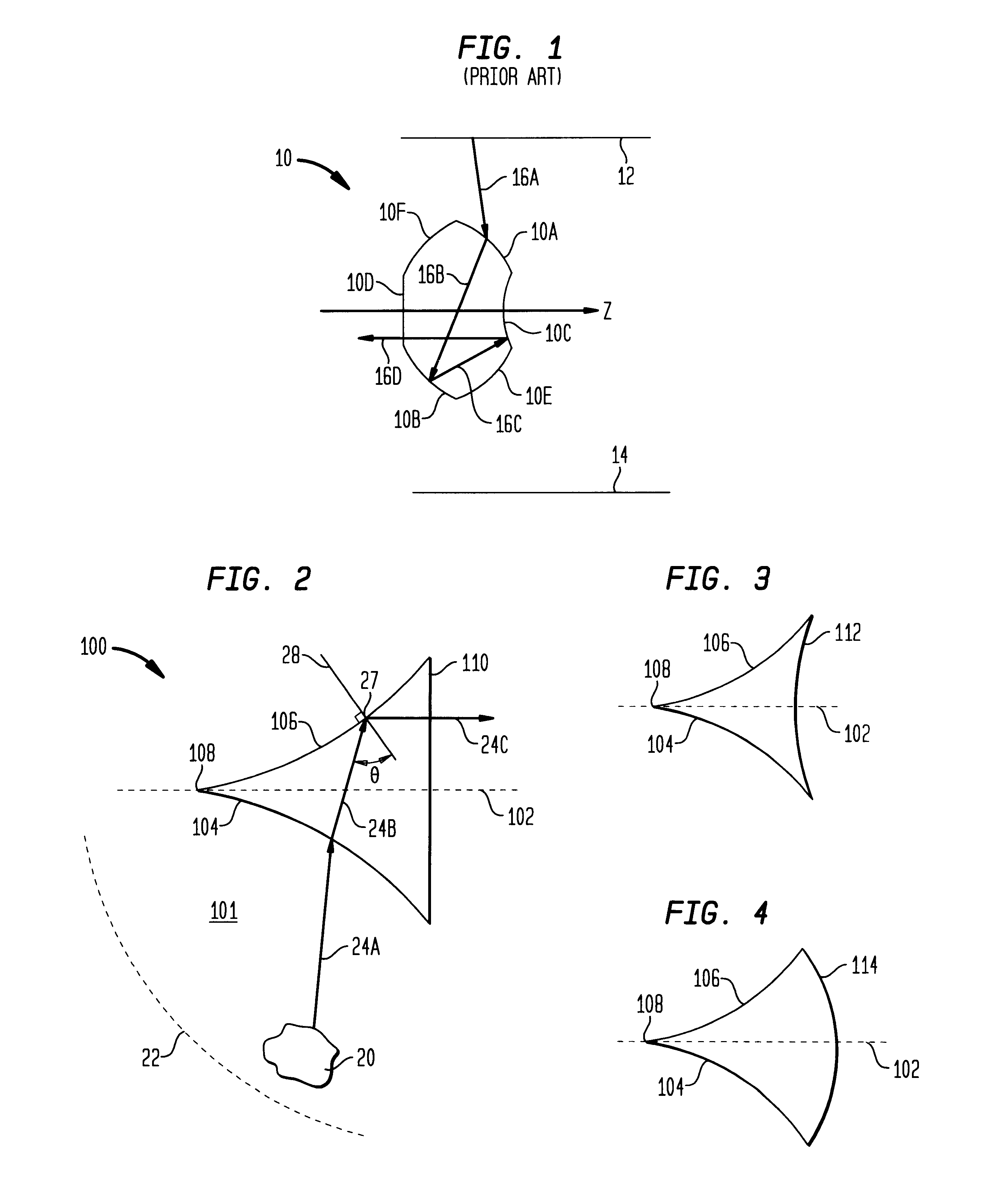Panoramic refracting conical optic
a conical optic and panoramic technology, applied in the field of optical devices, can solve the problems of limited forward-looking angular resolution along the z-axis of the lens based on the two-dimensional diametrical geometry of the pal 10, difficult to machine with acceptable tolerances, and the three-dimensional realization of the lens based on the two-dimensional diametrical geometry of the pal 10 is difficult to achieve,
- Summary
- Abstract
- Description
- Claims
- Application Information
AI Technical Summary
Benefits of technology
Problems solved by technology
Method used
Image
Examples
Embodiment Construction
)
Referring again to the drawings, and more particularly to FIG. 2, a two-dimensional diametrical view of an embodiment of a panoramic refracting optic according to the present invention is shown and referenced generally by numeral 100. That is, the three-dimensional solid structure of the optic is achieved by rotating the view in FIG. 2 about the longitudinal axis 102 of optic 100. Accordingly, the present invention is a solid, conically-shaped, three-dimensional structure. Optic 100 is made from any optical material that permits the passage of light therethrough. Suitable materials include, but are not limited to, quartz glass, plexiglass, flint glass, boron glass, diamond, or any other optical material suitable for use in the manufacturing of lenses.
In the description to follow, optic 100 will be explained for its use in imaging objects lying in a semi-spherical or hemispherical scene about optic 100. However, it is to be understood that optic 100 could also be used to illuminate ...
PUM
 Login to View More
Login to View More Abstract
Description
Claims
Application Information
 Login to View More
Login to View More - R&D Engineer
- R&D Manager
- IP Professional
- Industry Leading Data Capabilities
- Powerful AI technology
- Patent DNA Extraction
Browse by: Latest US Patents, China's latest patents, Technical Efficacy Thesaurus, Application Domain, Technology Topic, Popular Technical Reports.
© 2024 PatSnap. All rights reserved.Legal|Privacy policy|Modern Slavery Act Transparency Statement|Sitemap|About US| Contact US: help@patsnap.com










